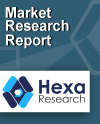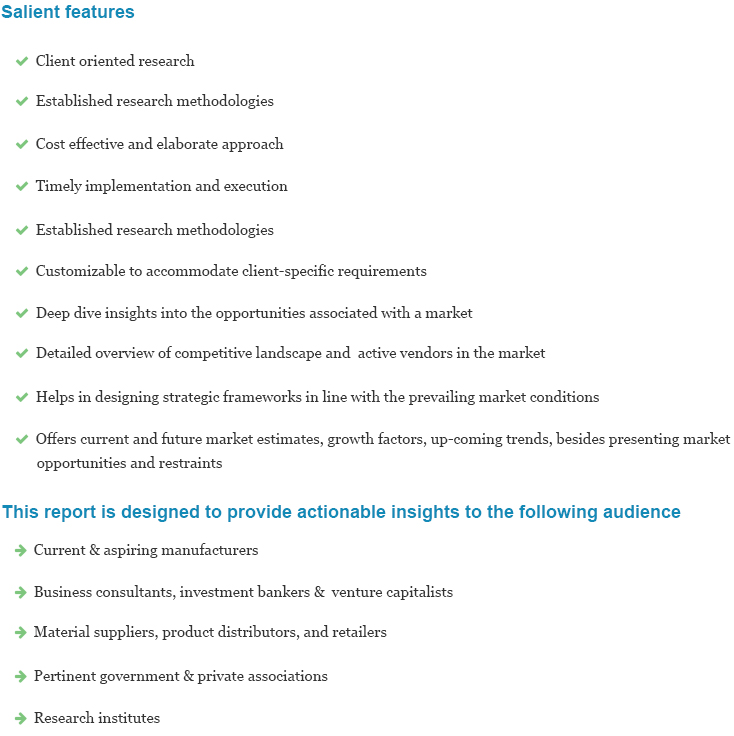
Blockchain Market Size, Market Share, Application Analysis, Regional Outlook, Competitive Strategies and Forecast, 2017 To 2025
- Published: December, 2018
- Format: Electronic (PDF)
- Number of pages: 70
- Industry: Technology
The global blockchain market is estimated to witness a strong growth over the forecast period (from 2017 to 2025) on account of rising need for fast, secure, and efficient management of data and financial transactions. Increasing cases of bank frauds and continual R&D activities to explore potential of blockchain technology can also propel its adoption among various sectors, thereby boosting the market development in the coming years. Blockchain is a database, or distributed ledger, shared across private or public computing network. Each computer device in the network holds a copy of ledger to avoid any failure. All the information is encrypted and added as new block to the chain of historical records. These new blocks can be validated using consensus protocols before being added to the chain. These ledgers are programmed with “smart contracts”, a set of conditions, which trigger transactions automatically.
Blockchain technology came into limelight with the advent of cryptocurrencies like Bitcoin and Ethereum. Cryptocurrencies are an electronic cash system that uses peer to peer network to avoid duplicate payments. It is a decentralized system having no central or server authority. Financial services, government, healthcare, retail, and travel and hospitality are some of the major application areas for the technology. Since the origin of bitcoin, blockchain has impacted the financial service sector. The technology simplifies the process of asset management and payments through autonomous trade lifecycle where all the participants have access to same information. This eradicates the requirement of intermediaries or brokers while ensuring effective and transparent data transaction. In healthcare sector, blockchain technology is used to enhance security, privacy, and interoperability of healthcare data. The technology allows healthcare services to securely transfer healthcare records among various facilities.
In addition, it helps reduce overhead expenses by eliminating the need for third-party to manage sensitive health records. This factor is expected to boost the technology demand in this application segment in the next few years.Government sector is also increasingly adopting the technology as it enhances the transaction transparency by offering advanced ways of data monitoring and audit.Rapidly booming hospitality and travel sector is also likely to have a positive impact on the market. Implementation of blockchain technology in this sector can be highly beneficial for tourists, as well as hotels. The technology can efficiently manage money transactions among multiple participants and allow secure storage of essential documents, such as identification cards/passports and reservations, in a digital format. Moreover, it can also manage loyalty, rewards, and travel insurance data. All this factors are projected to boost the demand in the travel sector over the coming years.
Another emerging application segment is e-commerce as it involves financial transactions and consumer information, which need to be managed in a safer way. Alibaba Group Holding Ltd.is invest huge amounts in blockchain R&D. In addition, Unilever and Walmart also collaborated with IBM to use blockchain for tracing food during transport. In another instance, Amazon Web Services (AWS) is offering infrastructure to build blockchain solutions to be integrated with the company’s services. Developers can use frameworks including hyperledger, hyperledger farbric, Ethereum, sawtooth, and Corda available on AWS platform. Some of the leading companies operating in the global blockchain market are IBM Corp.; Amazon.com, Inc.; Microsoft Corp.; Deloitte Touche Tohmatsu Ltd.; Circle Internet Financial Ltd.

Choose License Type
- World's largest premium report database
- Transparent pre & post sale customer engagement model
- Unparalleled flexibility in terms of rendering services
- Safe & secure web experience
- 24*5 Research support service
